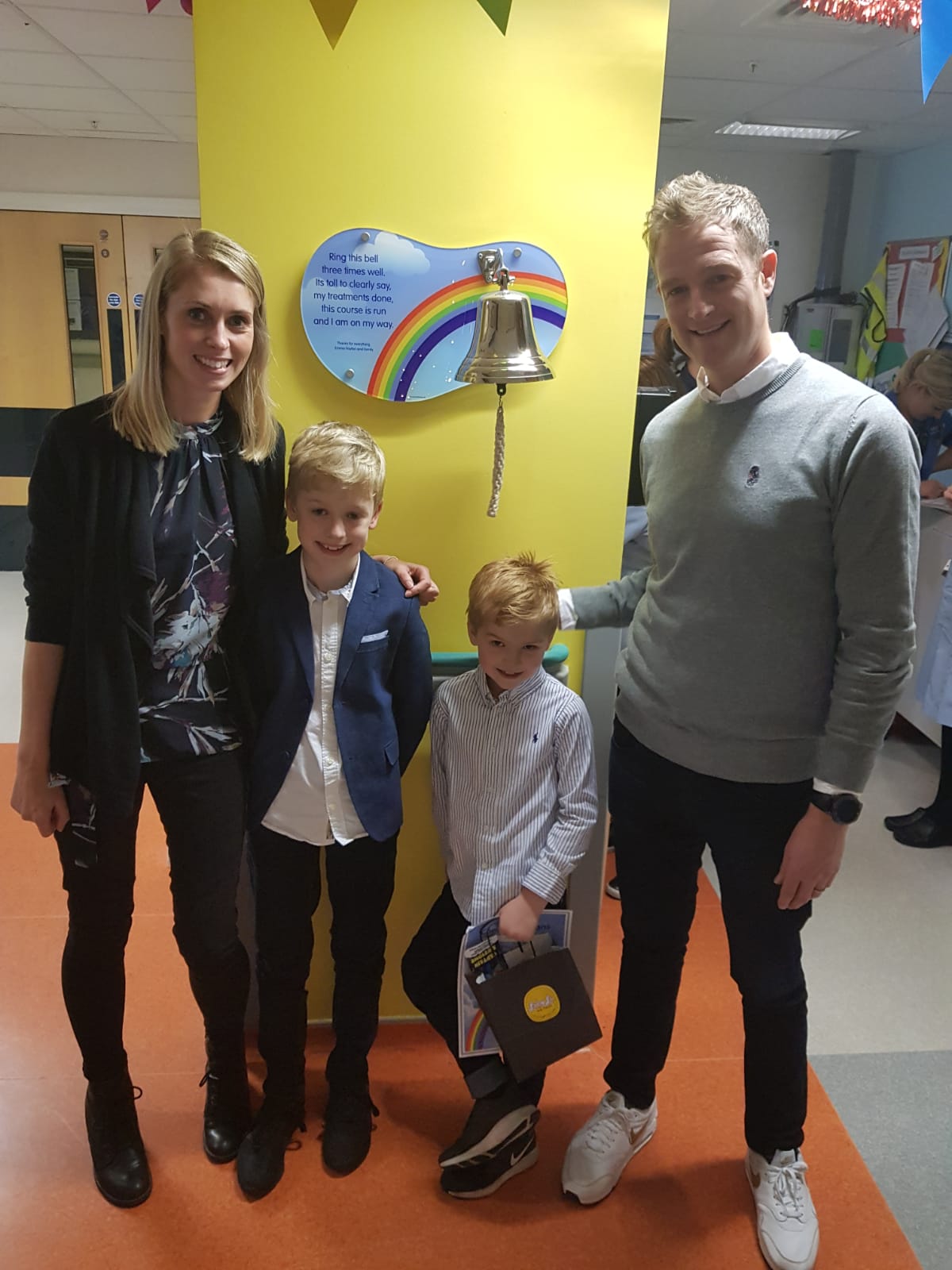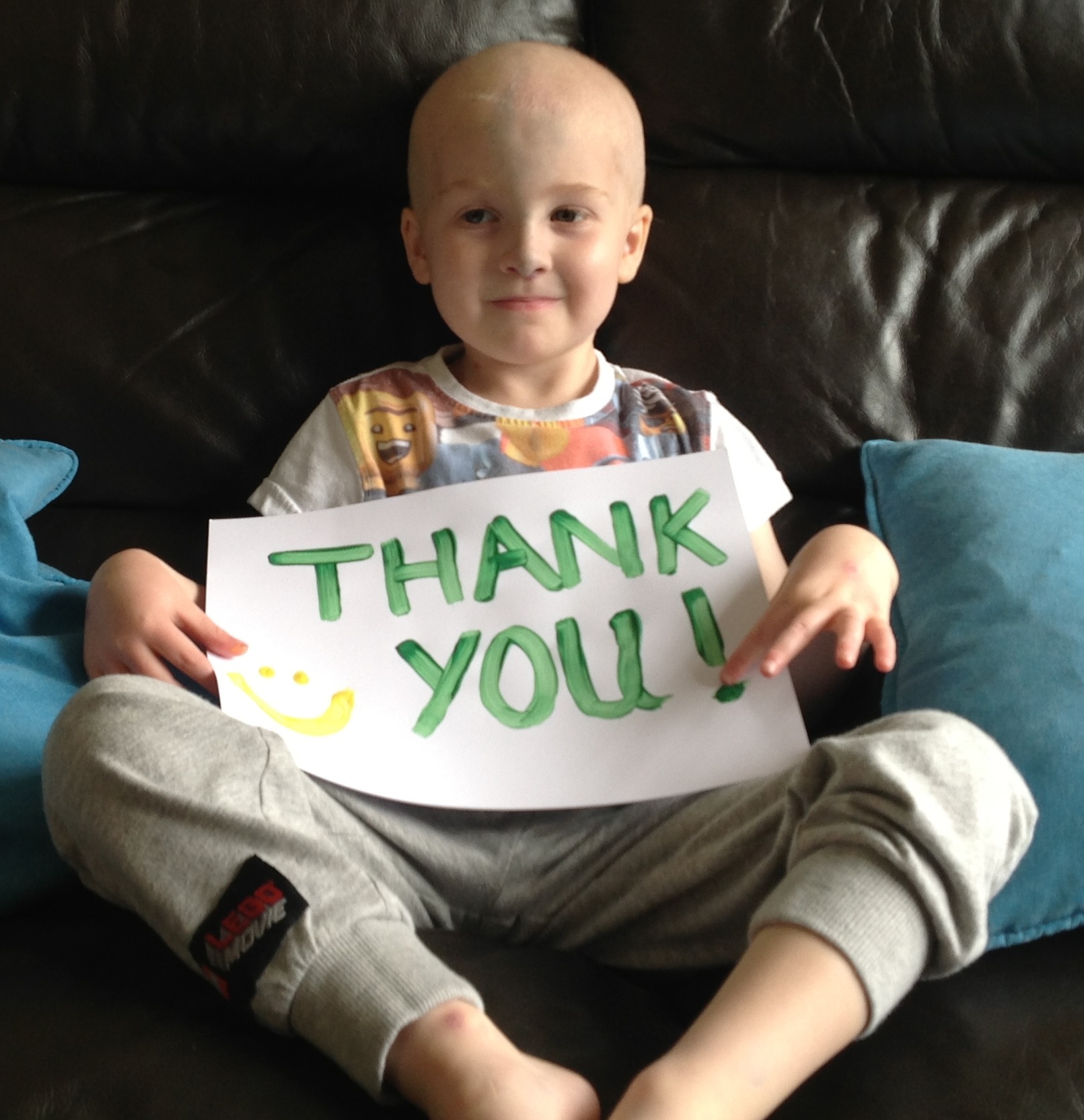Dexter’s thank-you to platelet donors
“When Dexter was diagnosed, I didn’t know what platelets were,” says his father, Jonny Kidd. “I remember the first unit of platelets he received – he began to perk up and had more energy. Platelets were integral to Dexter’s treatment and, ultimately, have saved his life.”
 Jonny realised something was not right with Dexter during his fourth birthday party. He wasn’t himself. He looked pale and didn’t want to open any of his birthday presents.
Jonny realised something was not right with Dexter during his fourth birthday party. He wasn’t himself. He looked pale and didn’t want to open any of his birthday presents.
Dexter was taken to the doctors and, after an overnight stay at Wythenshawe Hospital, was admitted to Ward 84, the specialised oncology and haematology unit at Manchester Children’s Hospital.
(Picture: Left to right, Katie, Joey, Dexter and Jonny Kidd)
“We got taken into a room and Dexter was only four, so he didn’t really understand,” says Jonny. “The doctor said: ‘Your son’s got leukaemia.’ In that one moment in time you find yourself waiting to find out if your child is going to live or die.”
Dexter was diagnosed with acute lymphoblastic leukaemia in 2015. During three years of treatment, Dexter received three units of platelets, available because of the generosity of donors.
What are platelets?
Platelets are tiny cells in our blood that help it to clot and so prevent bleeding. They are used in treatments for many patients with cancer and blood disorders.
You can donate platelets more often than you can donate blood and one platelet donation can help up to three adults or 12 children.
Dexter rang the end-of-treatment bell in December 2018.
 His family organised ‘Dexter’s Ball’, an event that raised vital funds for three different charities, including Milly’s Smiles, which provides welcome packs to families with a newly diagnosed child admitted onto Ward 84.
His family organised ‘Dexter’s Ball’, an event that raised vital funds for three different charities, including Milly’s Smiles, which provides welcome packs to families with a newly diagnosed child admitted onto Ward 84.
Jonny has since donated platelets twice after realising how important they were for Dexter’s treatment. “I think that everyone who donates platelets is wonderful and would like to thank them for their time and effort,” he says.
“We feel very, very lucky to be in this privileged position where Dexter is alive and well. Seeing the pain Dexter and other cancer sufferers go through, my two hours giving platelets were nothing in comparison and a great way of giving something back.”
Donating platelets
You can donate platelets more often than you can donate blood and one platelet donation can help up to three adults or twelve children.
Platelet donations appointments can take up to two hours at one of our 23 donor centres, which have free WiFi, TV and modern facilities, and are located in town and city centres across the country.
Blood types A negative, A positive and AB negative are especially needed for platelet donation.
Not everyone is able to give platelets, so we have to do a quick assessment and we take a blood sample.
It’s quick and easy to make an appointment by calling 0300 123 23 23 or at platelets.blood.co.uk.

